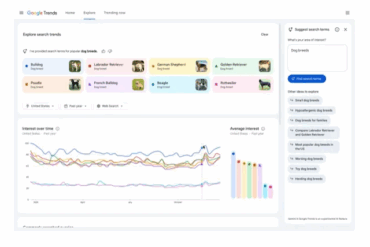By Kelly Main
And no, it doesn’t involve yoga, meditation, diet, or exercise.
Happiness is a universal desire. Yet it’s something most people struggle to find, never mind sustain, says Dr. Nathaniel Daw, a professor in neuroscience at Princeton University. According to his research, published by Medical News Today, humans are wired for unhappiness. But this predisposition is anything but a prognosis.
As elusive as happiness may be, it doesn’t have to feel like a lifelong rabbit hunt where happiness springs up from nowhere as quickly as it disappears. The secret to finding happiness isn’t as much about knowing where to look for it, as it is knowing how to look at it, says AngelList co-founder, Naval Ravikant.
According to Ravikant, it was his ability to find happiness that helped him build a successful startup and become the billionaire he is today. Because success isn’t a path to happiness. Happiness is a path to success. And research proves it.
Time and time again, studies show that happiness increases your odds of success. It helps explain how Elon Musk notoriously works 120 hours per week–becoming one of the most successful entrepreneurs of our time and the richest person in the world.
In other words, the happier you are, the more likely you are to be successful. Ravikant says there are a few simple things anyone can do to hack happiness–no matter how pessimistic you might naturally be.
Desire is suffering
While there is a benefit to innate unhappiness and dissatisfaction that is derived from a desire for more, Dr. Daw says this also “comes at the expense of constantly devaluing what we already have achieved, which the authors suggest might, taken to extremes, relate to depression.”
In other words, our desires serve as conditions for happiness. And we have all of these conditions for happiness that we have constructed.
Maybe we want more money, a nicer car, five-star vacations, a boss that recognizes our talents, an endlessly doting partner, a family that effortlessly gets along, or in-laws that don’t get on our nerves. But as long as we have these external gatekeepers to happiness, we’ll be hard-pressed to find happiness within ourselves.
Focus on one desire at a time
The problem then becomes, Ravikant says, that we have too many desires.
Limit your focus to one desire in order to achieve it. In this case, that one desire is happiness. So the question becomes, “does this ultimately lead me toward happiness?” When we field everything we do through a lens of whether or not our actions or thoughts help us or hinder us in the pursuit of our utmost desire, we set ourselves up for success.
Take for example a very mundane task such as taking out the garbage. No one enjoys doing it, but it does lend to our overall happiness as the alternative would ultimately lead to living in squalor–something no one truly enjoys.
Make happiness a priority
To quote Confucius: “The healthy man has 10,000 desires, but the sick man has just one.”
It illustrates that when things get difficult, we are able to eliminate the noise and clearly focus on what is important. In a dire position, priorities become obvious. But we don’t have to wait for an illness or a grim prognosis to prioritize happiness.
Entrepreneurs often fall prey to prioritization mismanagement. With so many (big) ideas, they are often left thinly spread. By doing a little of everything, like a jack of all trades, they turn into a master of none–goals and happiness included.
It’s this lack of prioritizing what matters most that drives many startups (and founders) into the ground.
Increase happiness through framing
There are two ways of seeing just about anything. This means that we can choose happiness by framing it the right way.
For example, consider a colleague who forwards you a number of emails you don’t need. You could think it’s obnoxious and that they don’t have any discernment (or even respect for your time). But you could frame it as though they are being considerate and keeping you in the loop, or that they are kindly giving you the power to decide which of the emails are of value to you.
It’s a process that eliminates negative judgment. It may not come as second nature in concept, but in practice it can. Soon we begin to look at the world through a positive lens, rather than a negative one, which shapes our experiences and our overall happiness.
Every entrepreneur seeks massive success, and yet to amass success, you need to amass happiness. The two go hand in hand, because while success does not equate to happiness, happiness is, by and large, success.
Feature Image Credit: Getty Images





